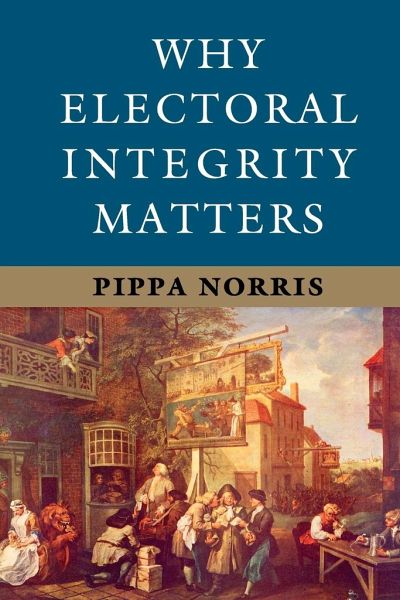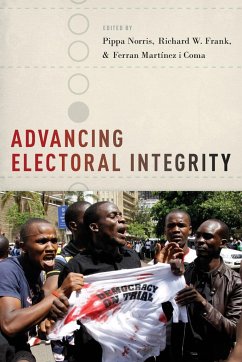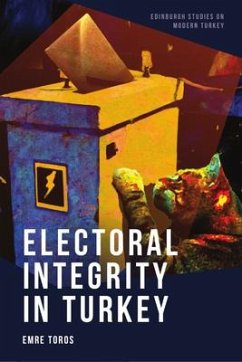
Why Electoral Integrity Matters
Versandkostenfrei!
Versandfertig in 1-2 Wochen
34,99 €
inkl. MwSt.
Weitere Ausgaben:

PAYBACK Punkte
17 °P sammeln!
This book is the first in a planned trilogy by Pippa Norris on challenges of electoral integrity to be published by Cambridge University Press. Unfortunately too often elections around the globe are deeply flawed or even fail. Why does this matter? It is widely suspected that such contests will undermine confidence in elected authorities, damage voting turnout, trigger protests, exacerbate conflict, and occasionally lead to regime change. Well-run elections, by themselves, are insufficient for successful transitions to democracy. But flawed, or even failed, contests are thought to wreck fragil...
This book is the first in a planned trilogy by Pippa Norris on challenges of electoral integrity to be published by Cambridge University Press. Unfortunately too often elections around the globe are deeply flawed or even fail. Why does this matter? It is widely suspected that such contests will undermine confidence in elected authorities, damage voting turnout, trigger protests, exacerbate conflict, and occasionally lead to regime change. Well-run elections, by themselves, are insufficient for successful transitions to democracy. But flawed, or even failed, contests are thought to wreck fragile progress. Is there good evidence for these claims? Under what circumstances do failed elections undermine legitimacy? With a global perspective, using new sources of data for mass and elite evidence, this book provides fresh insights into these major issues.














